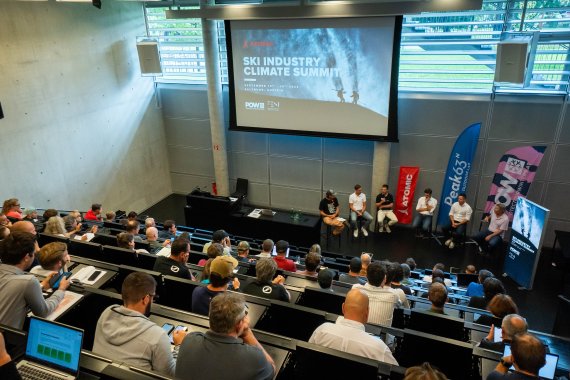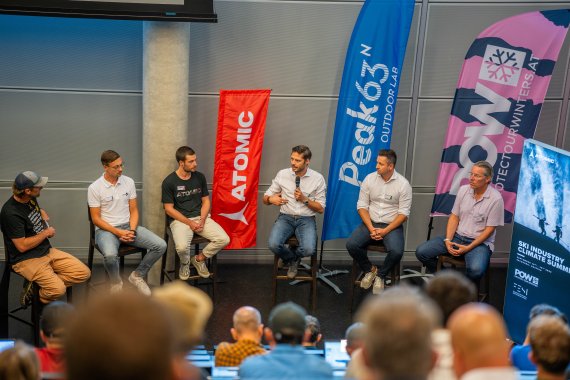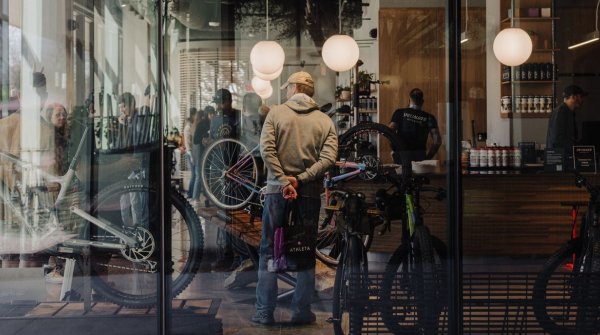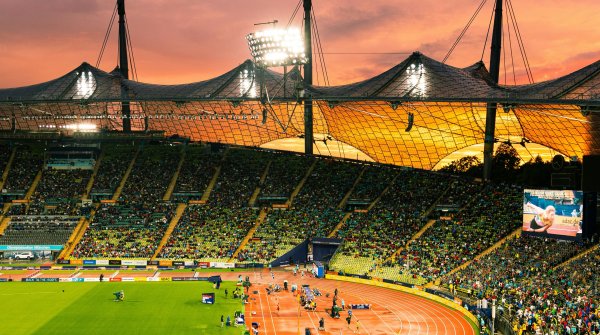- The ski industry met for the first time last year for the Ski Industry Climate Summit by Atomic. What was the occasion?
- What makes this event so special?
- The industry is facing many challenges: What strategies is the industry discussing?
- What new regulations is the industry currently focusing on?
- Why and where is more cooperation needed?
- What is POW's role in this cooperation?
- Can you name some of the outcomes of the last summit?
- What do you expect from the December event?
- Who should not miss the Summit? What is the target audience for the Summit?
- Who has already confirmed their attendance?
Hardly any other sports industry is as directly affected by the effects of climate change as the ski and snowboard industry. When glaciers melt, seasons become ever shorter and snow increasingly has to be produced artificially in many places, the framework conditions for winter sports resorts and the winter sports industry alike change.
In order to start a movement for more climate protection in the industry, the first Ski Industry Climate Summit by Atomic took place last year in Salzburg at the invitation of Atomic. For the first time, leading international ski manufacturers, suppliers, retailers, trade associations, sports associations and climate protection organisations came together to define and initiate important joint measures for more climate protection. Presentations and workshops for all participants covered topics such as decarbonising the hardware supply chain, more sustainable product design, establishing a closed-loop system for sporting goods and setting up an impact measurement data management system.
After a successful kick-off, the Climate Summit is now entering its second round. And has chosen a platform that could hardly be more fitting: ISPO Munich 2024. Supported by the Federation of the European Sporting Goods Industry (FESI), Protect Our Winters (POW) and the European Outdoor Group (EOG), around 200 industry insiders from various sectors are expected at the ICM at the Munich Trade Fair Centre on 2 and 3 December.
We spoke to Jonas Schneider, Executive Director of Protect Our Winters (POW), about the results of the last climate summit, the next steps and why it is so important to attend.
The key takeaway was the realization that brands and manufacturers must make significant progress on decarbonizing the industry, which can only be achieved through collaboration. As often happens, a strong actor needs to take the first step, and it is great news that Atomic has committed to this role, dedicating the necessary resources to it.
As a sector directly impacted by climate change, the industry must act not only to safeguard its own future but also to recognize that the changes we all see in the mountains are just the beginning of the critical impacts already affecting less fortunate communities worldwide.
Collaboration between competitors is often challenging, so looking back, we can definitely say that the initial response and attendance were promising, if not overwhelming. The summit's achievements reflect the ski industry's commitment to meaningful change and reducing its climate impact.
We must first define the "industry." Currently, the summit involves the hard goods equipment sector, including brands, suppliers, and retailers. For this segment and the broader winter sports industry, the goal is to lead in climate action and transformation, inspiring the entire outdoor community.
As a small industry, success should be measured not just by progress but by how much we inspire a larger movement through our actions and communication. Ultimately, our shared goal is to shift the image of skiing, snowboarding and winter sports in general from climate change contributors to climate champions.
The guiding targets are those set by the Paris Climate Agreement and also the UNFCCC race to zero. Regulations in Europe and North America are primarily focused on material compliance, the circular economy, and communication transparency.
Collaboration leads to common standards, shared solutions, and more effective large-scale systems, which is crucial given the urgency of the climate crisis. The first Ski Climate Summit last autumn 203 in Salzburg marked a strong starting point. However, this is just the beginning—ongoing collaboration is essential, not just at these summits but even more in between, where the work leading to the next milestones must be done, such as for instance on common Life Cycle Assessments and take back schemes for recycling.
Bringing competitors together and creating a safe space for collaboration is never easy, but POW, as an NGO, contributes to the summit's success through its experience, working with many different stakeholders on the topic of sustainability and climate action. In addition, POW enables the industry, when it comes to sustainability, to act as one.

The Ski Industry Climate Summit by Atomic fostered a willingness among industry representatives to collaborate on climate challenges and raised awareness about data-driven climate action, resulting in the winter sports industry uniting around a transformative WSN Climate Pact. The summit also educated attendees on upcoming legislation and regulations, preparing them for future changes. It emphasized sustainable practices in material use, recycling systems, and industry standards, including efforts to harmonize data exchange and develop a product environmental footprint rule.
The framework is now well-defined, and the objectives are clear. Now we need to shift from commitment to action by together advancing circular systems, material standards, large-scale industrial transformation, and other key initiatives.

It is essential that all brands in the hard goods sector attend the next Ski Industry Climate Summit by Atomic in Munich, around ISPO. Participation benefits not only individual companies but the entire industry. No one can afford to miss the opportunity to shape the future of skiing and snowboarding. In fact, I would argue that every ski and snowboard brand has a moral obligation to be part of this movement, working together to become a sustainability role model.
Most major ski and snowboard brands have confirmed their attendance. Additionally, gear brands for helmets, poles, goggles, and other equipment have been newly invited.
 Sports BusinessThe future of the bike industry: 6 innovative bike stores
Sports BusinessThe future of the bike industry: 6 innovative bike stores
- ISPO awards
- Mountain sports
- Bike
- Design
- Retail
- Fitness
- Health
- ISPO Job Market
- ISPO Munich
- ISPO Shanghai
- Running
- Brands
- Sustainability
- Olympia
- OutDoor
- Promotion
- Sports Business
- ISPO Textrends
- Triathlon
- Water sports
- Winter sports
- eSports
- SportsTech
- OutDoor by ISPO
- Heroes
- Transformation
- Sport Fashion
- Urban Culture
- Challenges of a CEO
- Trade fairs
- Sports
- Find the Balance
- Product reviews
- Newsletter Exclusive Area
- Magazine




